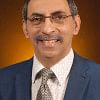
Nawshad Ahmed
Dr Nawshad Ahmed, a retired UN official, is an economist and urban planner.
Dr Nawshad Ahmed, a retired UN official, is an economist and urban planner.
There is ample evidence showing that both domestic and foreign direct investment (FDI) have a significant positive effect on economic growth.
Higher tariffs on Bangladeshi exports will cost more for American consumers, resulting in reduced demand.
Economics, the subject, and its application make it both a science and art.
The Local Government Reform Commission’s recommendation to give zila parishads a stronger planning function makes sense.
The abrupt decision by the Trump administration to freeze almost all USAID operations globally has surprised millions of vulnerable people around the world.
Local government reform must continue, keeping future demand for services in view.
Effective political leadership is essential for achieving democratic governance.
In Bangladesh, challenges hindering the achievement of economic equality are: low public expenditure on education, training, health, rural development and social protection.
The rapid increase in global food prices in recent months have put many countries including Bangladesh in a crisis.
The social protection allocation in the annual budget has consistently increased over the last 14 years. In FY 2008-09, a total of Tk 13,845 crore was allocated for social protection programmes.
The Household Income and Expenditure Survey (HIES), last conducted in 2016, is a comprehensive national survey in Bangladesh.
Recently, while visiting a small town in the south called Raozan, I was impressed to see how there were no empty plastic bottles or used polythene lying around.
Despite the higher authorities’ public expression of dissatisfaction with frequent revisions of government projects, the practice of taking projects to ECNEC meetings to be granted deadline extensions, design changes, expansion of scope and budget enhancements has continued unabated.
A better understanding about the increasing economic importance of urban centres in national development is needed to shift the policy rhetoric towards increased urban investment.
I was shocked to know recently that my housemaid, who is a widow, had to pay for Tk 2 lakh worth of furniture and clothing for her daughter’s
Chattogram, the country’s second largest city and home to its main sea port, with an estimated population of 52 lakh people, has been suffering from serious water-logging and drainage issues for a long time.
Town planning is both a science and an art of designing and developing urban areas.
A megaproject is a large-scale, costly and complex venture, and its implementation usually takes several years.